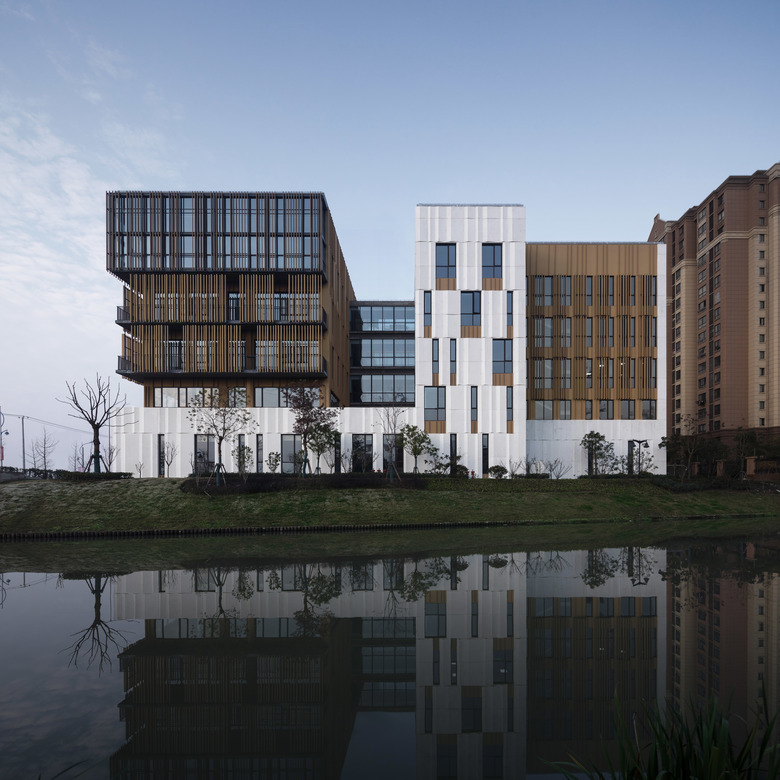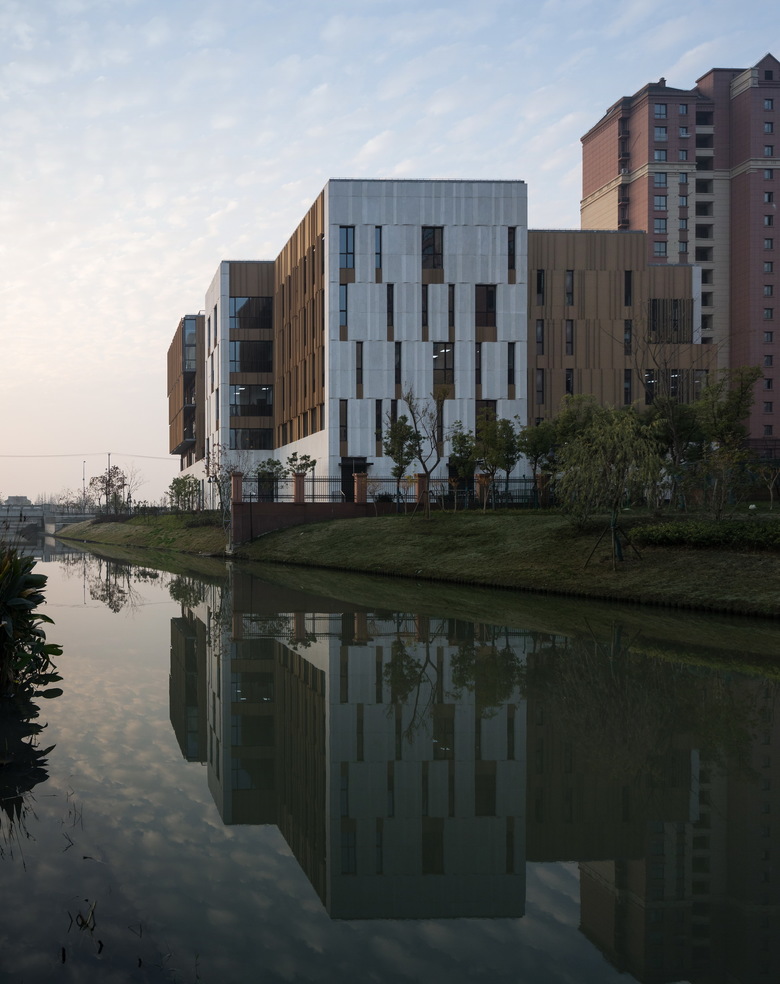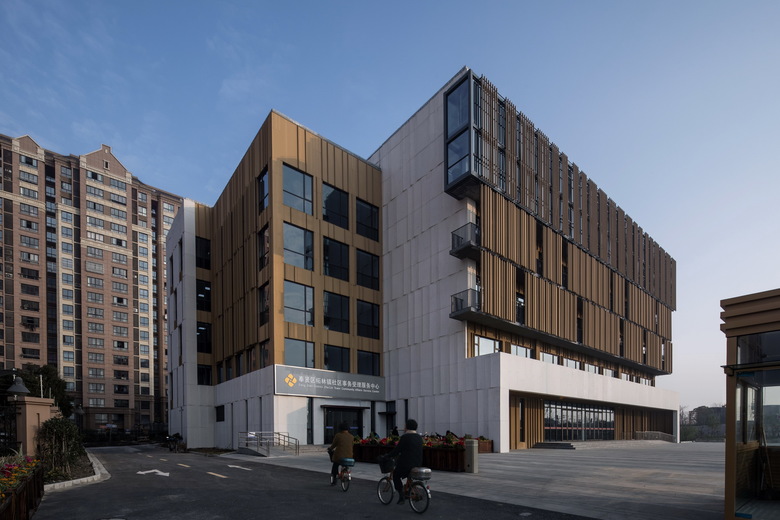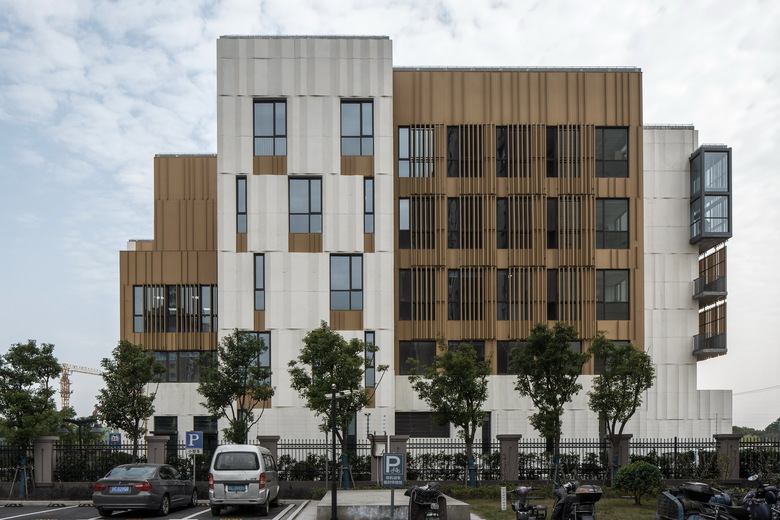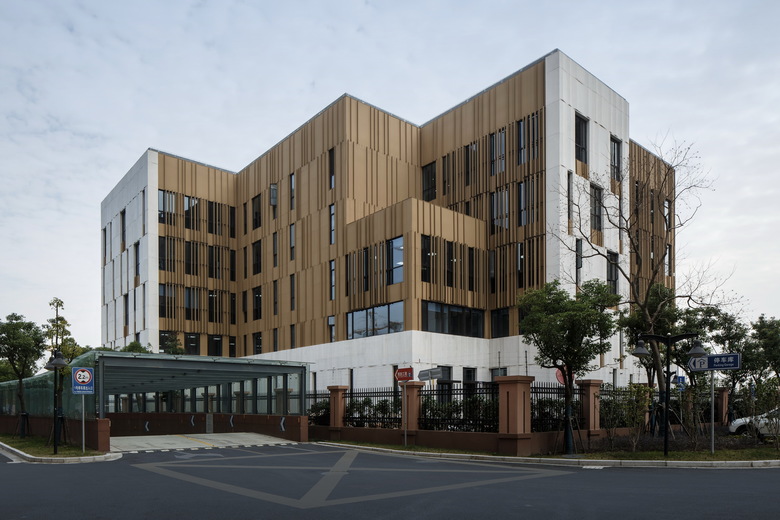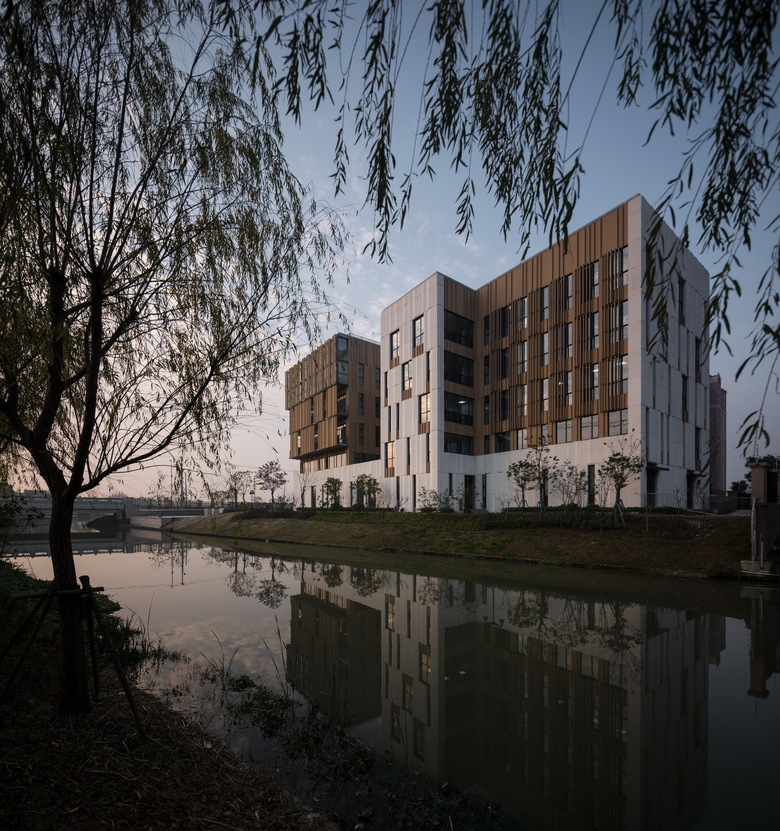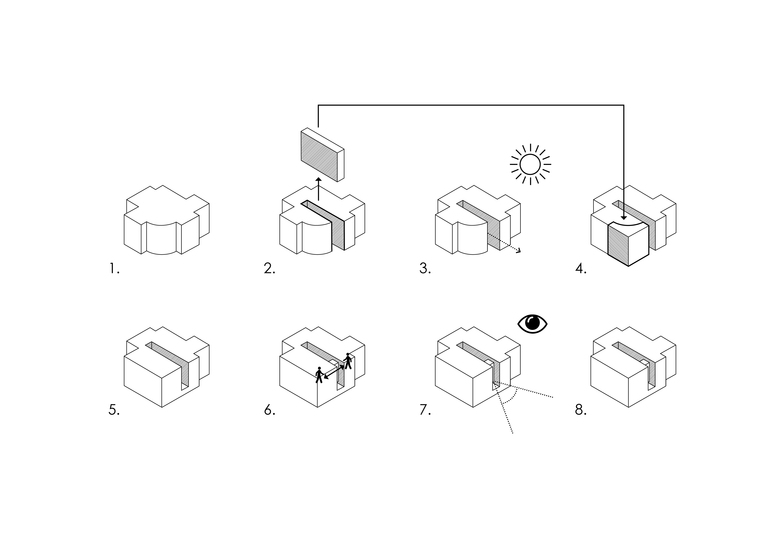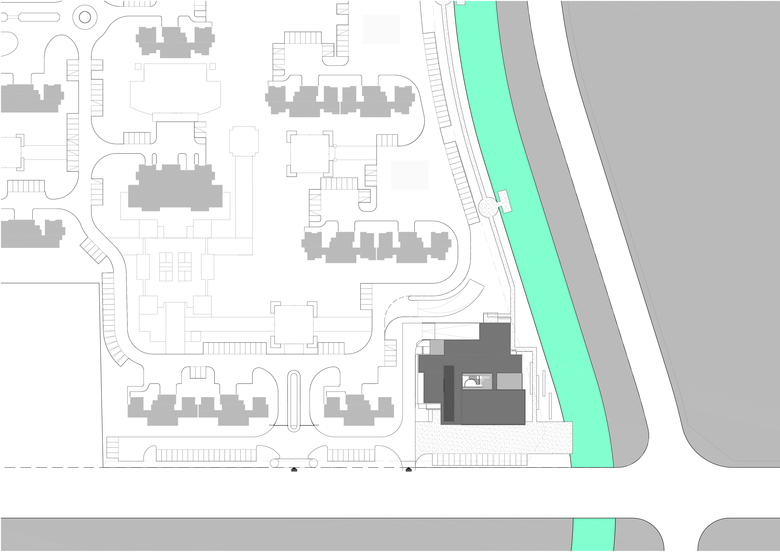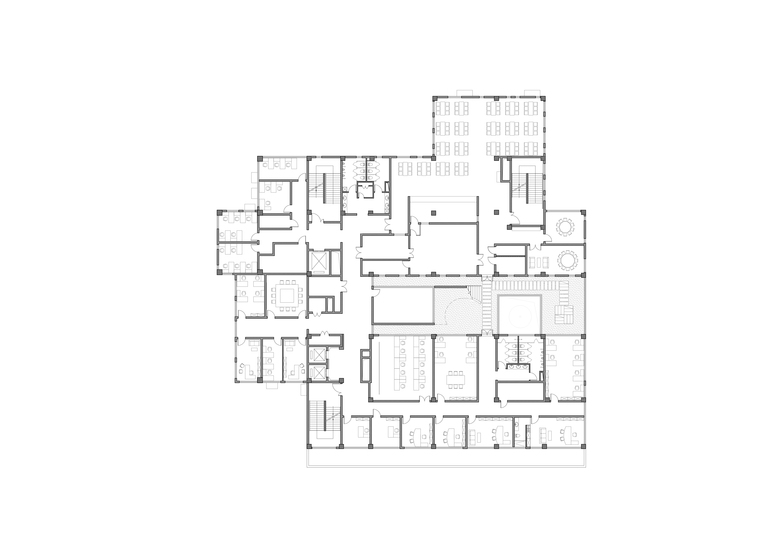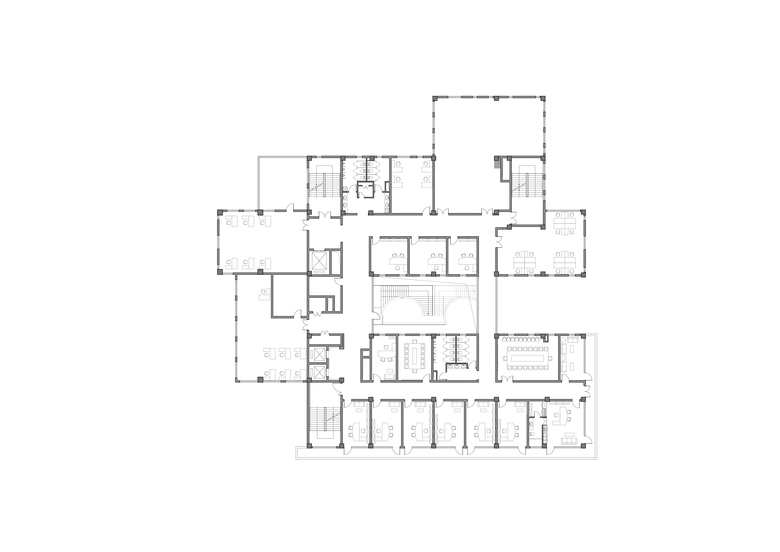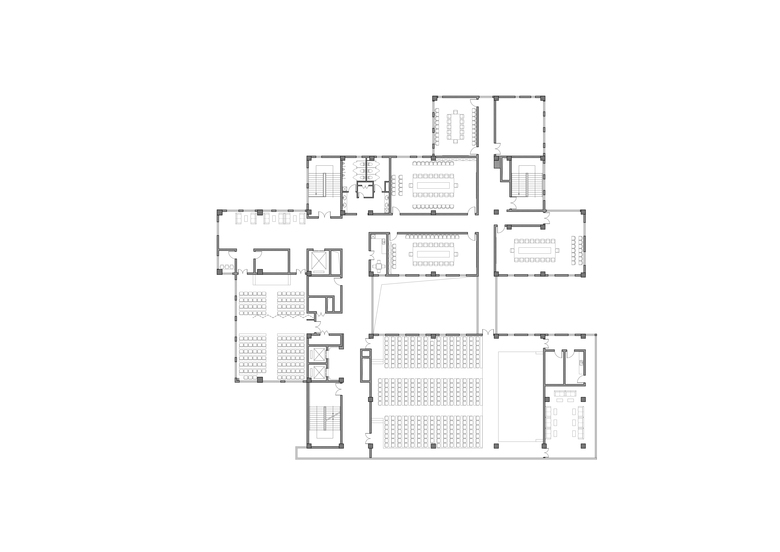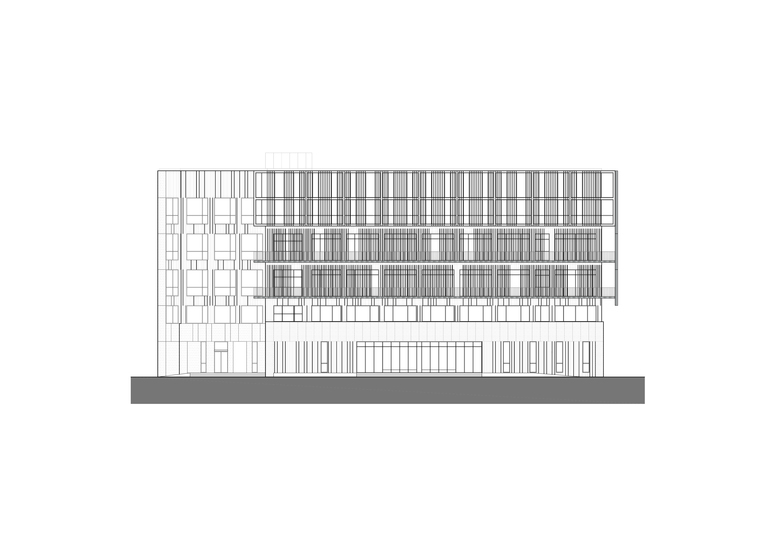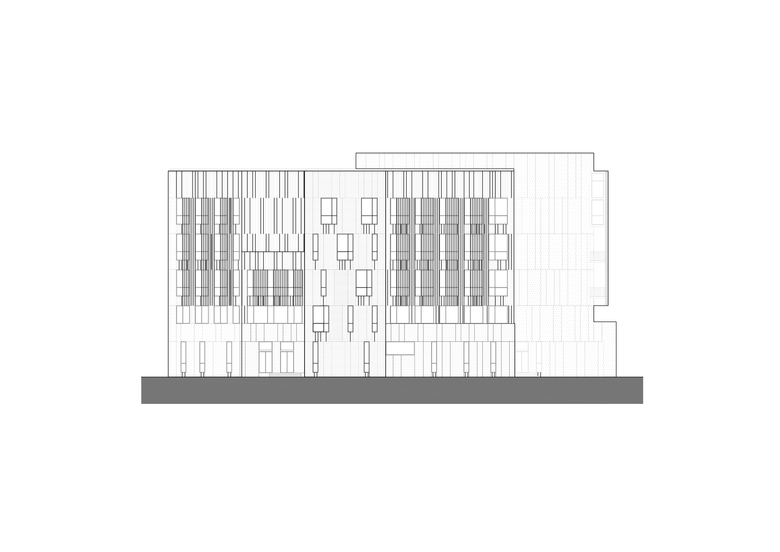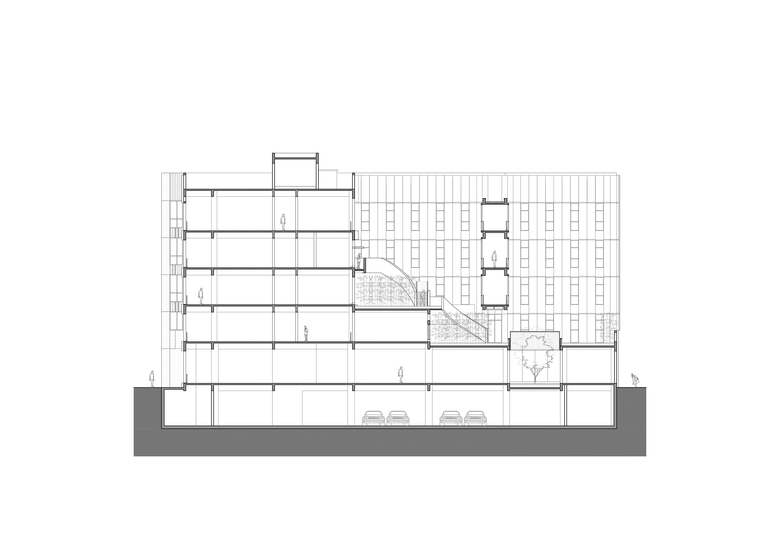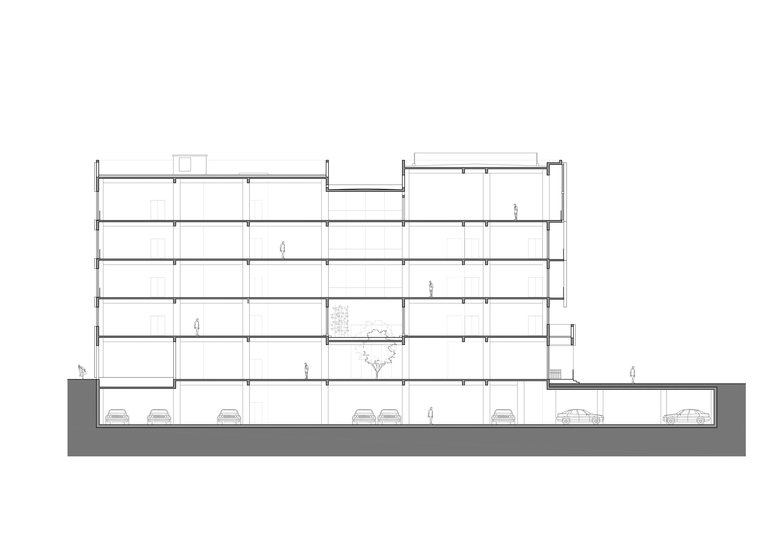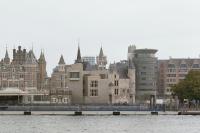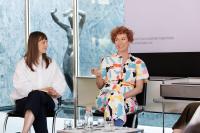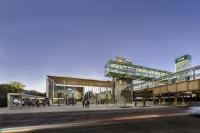Zhelin Community Service Center
Shanghai, China
Zhelin Administration and Community Service Center Building is located in Zhelin New Town of Fengxian District in suburb Shanghai. The currently completed design started as a retrofitting. Originally the building was planned as a retail venue without clear program configuration, but deep building depth and decorative façade languages matching neighboring residential quarter. When One Design was invited to redesign the building to accommodate the administration and community service functions, the underground part of structure has been just constructed per original design.
The primary pursue in retrofitting is to maximize natural ventilation and lighting. Hence a central volume was removed and added to the southeast corner. A central void is created. It is serving not only as a technical interface between human and nature for ventilation and lighting reasons, but also as an active vertical garden bonding with nature. The void opens to eastside with a river view and contains several landscaped terraces. Two curved outdoor stairs connect the terraces and ensure the vertical garden as pleasant and tangible experiences to people then just visuals. With the added volume in southeast corner, the extended south façade becomes more symmetrical, and marks a solid end to the axis from an artificial lake to south, underlying a proper gesture of civic building to nearby public space.
The irregular building form on north and west side was kept following sun shadow setback requirements. Two distinctive materials, glass-fiber reinforced concrete panel and composite wood panel were utilized to help forming a logically clear composition of volumes with hierarchies of transparency and solidness. Together with the balconies and flyover connecting corridors, a rich vocabulary of façade language was created to make this rather solid and cubical building more permeable, more as a group of varied elements collected than a monolith carved-out.
- Arquitectos
- INCLS (One Design)
- Localização
- No. 433, Xintang Road, Zhelin New Town, Fengxian District, 201424 Shanghai, China
- Ano
- 2018
- Cliente
- Zhelin New Town Administration
- Equipa
- Bing Bu, Chen Ye, Qian Tongshen
